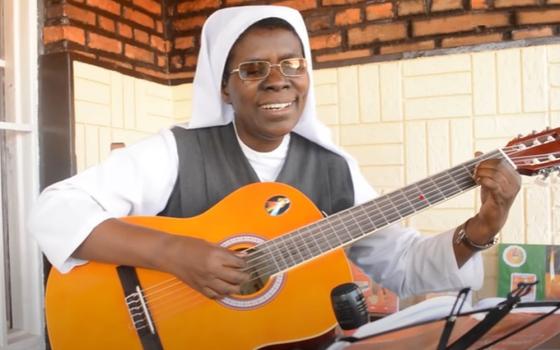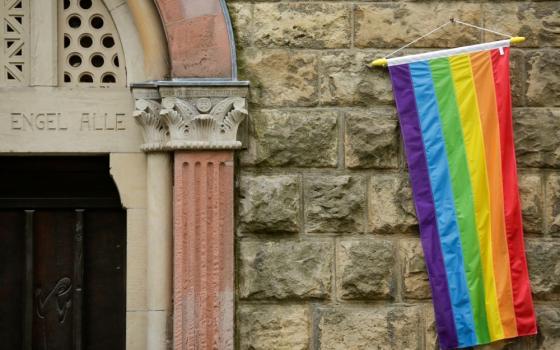My admiration for those who exercise heroic courage for justice testifies in part to my own lack of anything close to it.
Mostly my efforts to right the wrongs as I see them stops at the computer terminal with occasional jeremiads directed at a cluster of targets. But that all takes place at a safe remove. I'm not much of a street campaigner or a speaker of "truth" to power out in public.
That's why I need constant prodding from those who provide me models. Two of them died this week.
One was a Protestant minister, a mainline one no less, named George W. Webber. "Bill" He'd been formed at Harvard and Union Theological Seminary in the days when those credentials won entry to the now extinct Protestant Establishment. While a dean at Union, however, he heard one of those diffenent drummers calling him to battle against racism and poverty.
He moved to East Harlem and helped begin the East Harlem Protestant Parish and lived there for decades. He became immersed in an increasing number of justice initiatives. A quiet, self-effacing man with a radiantly spiritual manner, he and the ministry became a magnet for young people who identified with its example and its stature.
Later, he was approached to take over a venerable, dying seminary that had equipped mostly conservative Protestant missionaries for many decades. Webber agreed on condition that he be allowed to overhaul the nature and purpose of the school and that tenure be ended. The trustees agreed.
Under his tutelege, a new creation named New York Theological Seminary emerged. It opened its doors to untraditional seminary students, scores of African Americans and Latinos who felt summoned to ministry but had no degrees. He welcomed them, provided first rate theological education and made it possible for them to earn a bachelor's degree in conjunction with a master of divinity degree. Many who came had been store front preachers. The Seminary, located ironically in a building owned by Norman Vincent Peale's Marble Collegiate Church, quickly sprang to life.
It was unlike any other theololical school ever seen on the continent, humming with the enthusiasm and street-wise experience of students who understood the challenges of the Gospel's encounter with the worst of city life.
In the process, Webber founded a branch of the seminary for inmates at Sing Sing prison. I accompanied him there to watch him employ Socratic methods to elicit Biblical nuances from attentive prisoners. The paid chaplains at the prison were against the project because the graduates of Webber's program were better at relating to the prison population.
Bill Webber walked in new directions without financial guarantees or assurances that his vision of Christian ministry would gain support. He was fond of quoting Jesus' lesson that if something was of God it would survive; if not, it would dry up and blow away. He took big chances but not without constant contact with the communion of saints.
The other exemplar was Bill Callahan. I met him only a few times but was struck by his dauntless, irrepressible spirit. He exuded a confidence based in the prophetic witness of Scripture rather than in his own considerable self. He was highly intelligent and determined to go where he believed he needed to go, to the side of women seeking greater roles, including priesthood, to aid of the poor and desperate of Nicaragua and to the defense of many alarms of oppression that sounded along his way.
Like Bill Webber, Bill Callahan could easily have taken the soft route of success. Callahan held a PhD in physics and could have been ensconsed ina comfortable university chair. He chose instead to be an advocate and, in so doing, a thorn in the side of his Jesuit superiors. Had he been a Protestant, he would likely been able to pursue his causes without interference from above. Bill Webber was free to carry out his spiritual mandates in a way Bill Callahan wasn't. That's a moot point, however. Each was in a legitimate setting for his own ministry.
It took imagination and persistence for them to continue on. Perhaps the sign of authenticity that marked them both was that their struggles invigorated them rather than depleted them. They both laughed: Webber impishly, Callahan boomingly. They drew courage from the source and that made all the difference.




